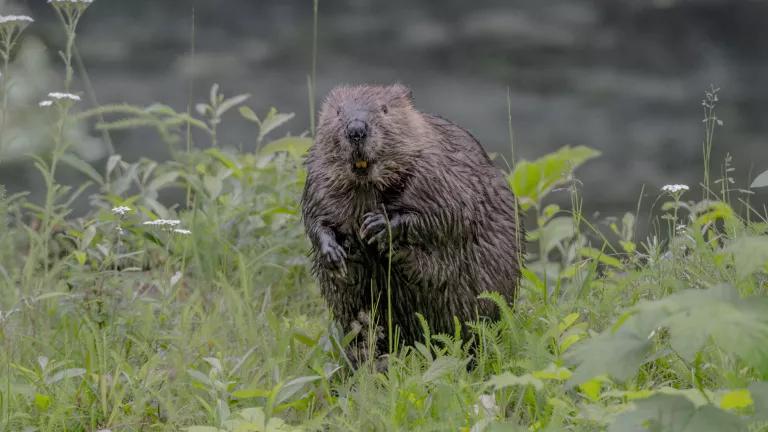
With governments around the world racing to address our current crisis, it seems profoundly strange to write about anything but the challenge of meeting this global threat that is disrupting our lives and threatening our families and loved ones. However, even in the face of a pandemic, government must continue its essential functions, and that includes operating and issuing permits for state and federal water projects. The repeated instructions to wash our hands for 20 seconds makes me even more grateful that my community (Oakland, CA), like most in California, has access to safe, clean drinking water from the tap; it also makes me even more upset that far too many Californians, as many as 1 million people across the state, lack this essential right.
While government works to get through this tough time, we still need to carefully watch over our government and make sure that they comply with public health and environmental laws, even those unrelated to the pandemic. Today is one of those days, because the State of California has finalized a new permit for the operations of the State Water Project that significantly weaken protections for salmon and other endangered species in California’s Bay-Delta watershed.
As conservation and fishing groups explained earlier this month in a letter to the Resources Agency, State and federal agencies have repeatedly emphasized the need to increase protections for winter-run Chinook salmon, spring-run Chinook salmon, delta smelt, and longfin smelt in order to prevent the state and federal water projects from driving these species extinct in the very near future. The State Water Resources Control Board, California Department of Fish and Wildlife, and conservation and fishing groups roundly criticized the Department of Water Resources’ proposal and have identified numerous ways in which the agencies violated the requirements of the California Environmental Quality Act. Rather than weakening protections, we urged the State to strengthen protections and avoid presiding over extinctions in the Delta.
While the State’s permits are not identical to the Trump Administration’s plan for extinction, they share many of the same problematic elements, such as allowing pumping to exceed the -5,000 cfs Old and Middle River flow limit needed to protect migrating salmon and other species (Section 8.7 of the ITP). The permit also does not require the federal Central Valley Project to meet these minimum protections, giving the Trump Administration a free pass and failing to require DWR to reduce pumping so that these minimum protections are actually achieved (Section 8.10 of the ITP). In other words, the OMR and other flow conditions that are supposedly the minimum necessary to prevent extinction aren't actually required to be achieved, instead DWR just has to provide a proportional share, and the fish will go extinct. And the permit will result in reduced Delta outflow in the winter and spring months, even though state and federal agencies have concluded that Delta outflow must be strengthened (section 8.17 and 8.18). Even DWR’s significantly flawed analyses demonstrate that the project will worsen conditions in the Delta, such as increasing the number of salmon and other fish entrained and killed at the pumps (see pages 4-10, 4-54, 4-84), reducing survival of spring-run Chinook salmon through the Delta (see page 4-87) and further reducing the abundance of longfin smelt by reducing Delta outflow (see pages 4-59 to 4-61). These species have been declining precipitously in recent decades due to unsustainable water management in the Bay-Delta, and this permit will make things worse.
Moreover, many of the flaws that the State identified in its lawsuit against the Feds apply equally to DWR’s proposal and analyses, such as the flawed modeling, assumptions that protections will be implemented in future droughts, and failure to provide a reasoned explanation justifying weakening protections for these species on the brink. This permit fails to fully mitigate impacts on the species, and given the federal biological opinions and other reasonably foreseeable impacts, the permit is likely to jeopardize the continued existence of these species.
I expect that conservation and fishing groups will be forced to go to court to challenge these unlawful decisions, in order to prevent these species from being driven extinct and to protect the thousands of fishing jobs that depend on a healthy Delta. It sounds like we won’t be the only ones suing the State, as the Metropolitan Water District of Southern California is voting next month whether to approve litigation challenging these permits, presumably because the State’s permit fails to fully embrace the Trump Administration’s plan for extinction, which the State Water Contractors and MWD are defending.
As California responds to the coronavirus pandemic, we are focused on protecting our families, our neighbors, and our communities. We look forward to the day when the immediacy of this pandemic has passed, and we can again break bread with our neighbors, hug our extended families, and gather together in celebration. But every day, even as we shelter in place, we are racing against time to confront the challenge of climate change. The alarming decline of the Delta’s native fish species is a warning to us that this estuary is not healthy and functional, and the minimal snowpack and low SWP water supply allocation this year are a reminder that climate change is threatening both our shared environment and water diversions from the estuary. California cannot continue with business as usual in the Delta, but must instead reform water management practices to reduce water diversions, and to invest in new, sustainable water supply projects to reduce our reliance on the Delta.



